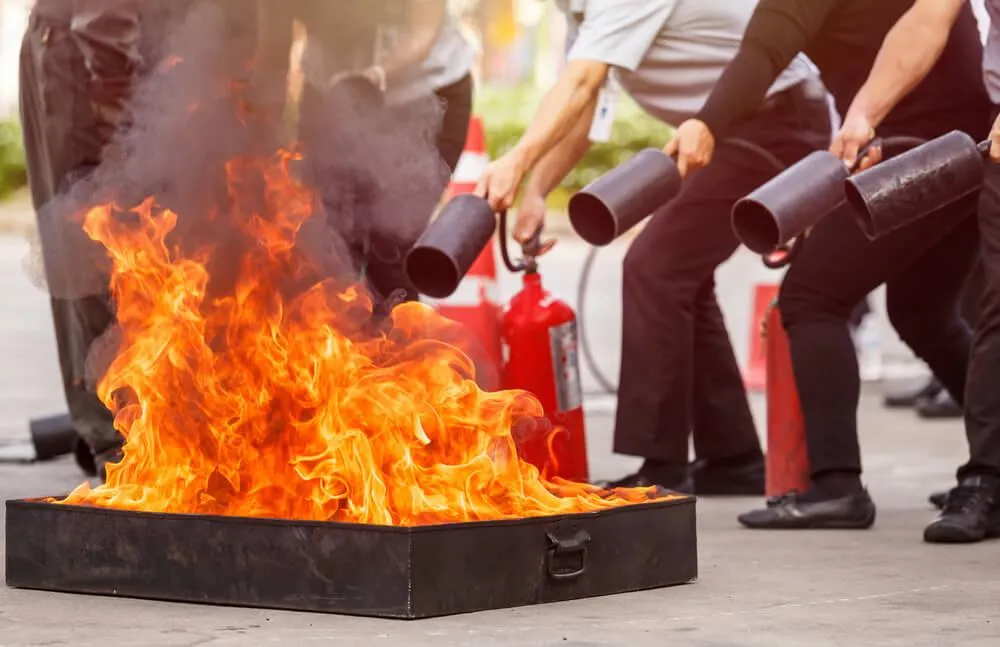
What is covered in OSHA-certified oil and gas training?
Oil and gas workers may encounter dangerous chemicals, materials and situations. This includes exposure to low oxygen environments, loud noises and extreme temperatures. H2S gas, hydrocarbon gases and naturally occurring radioactive material may also present hazards. Such encounters can result in respiratory trauma, hearing loss, heatstroke and even death. Indeed, 489 U.S. oil and gas extraction workers were killed on their work sites from 2013 to 2017. These potentially lethal situations are why it’s vital for your employees to participate in OSHA-certified oil and gas training.
Important topics that are covered in OSHA-certified oil and gas training
According to OSHA, programs must be established and supervised so that employers can recognize, avoid and prevent unsafe conditions. Accordingly, OSHA’s oil and gas training requires that oil and gas workers be knowledgeable about these important topics:
Vehicle collisions — Workers and their equipment spend lots of time being transported to and from faraway well sites. Because of the time spent traveling, oil and gas workers are subject to vehicle accidents; in fact, vehicle collisions on the highway are the leading cause of oil and gas worker fatalities. About 40% of oil and gas worker fatalities are from vehicle incidents on the highway, so it is vital for oil and gas workers to learn about motor vehicle safety and work zone traffic safety.
Explosions and fires — Ignition of flammable substances may cause potentially hazardous explosions and fires. OSHA oil and gas training covers ignition sources, hot work in oil fields, explosive hazards and flammability hazards.
Machine hazards — Oil and gas workers may work with an array of rotating head equipment, and your workers can get injured if they get hit by or caught between unguarded machinery. OSHA training requires workers to know about guarding machinery and machine safety in general.
High-pressure equipment and lines — Oil and gas workers may come in contact with high-pressure lines and compressed gases. Line bursts and leaks from internal line erosion may present these workers with hazards. OSHA oil and gas training requires that workers learn about pressure vessels and compressed gas and equipment.
Where can my employees receive OSHA-compliant
oil and gas training?
Basin Safety has got your back. We offer many workplace safety training programs, including many that can benefit oil and gas workers. These training programs are compliant with OSHA and other federal regulations. They are capable of not only satisfying these regulations but also preparing your employees for many on-site dangers.
Here at Basin Safety, we build solution-driven programs. Inspired to be better, we offer programs across many industries around the country. Contact us today to learn more about the many training programs we offer or to learn more about all our field services.
Archives
Categories
Benzene Testing
Bloodborne Pathogens
Breathing Air Systems
Certification Process
Confined Space Attendants
Confined Spaces
Construction Equipment Operators
Electrical
Environmental Compliance
Excavation and Trenching
Fire Extinguisher Training
Forklift Operator
Hazcom Workplace Safety
HAZWOPER
Hearing Protection Training
Heavy Equipment
Hydrogen Sulfide
Lone Worker
Lone Worker Solutions App
Monitoring
Oil and Gas
Oil Drilling
Online Training Confined Spaces
Permit-required
PPE
Radiation Safety
Rescue Equipment
Rescue Team
Safety Consultants
Safety Devices
Safety Tracking
Safety Training
Site Inspections
Training 1
Training 2
Training 3
Training 4
Training 5
Uncategorized
Virtual Access to Safety Data
Waste Haulers
Confined Space Rescue
Mental Health
VISIT US
202 48th Ave SW, Williston, ND 58801
2740 Sims St. Suite B Dickinson, ND 58601
(701) 572-8140

BASIN SAFETY CONSULTING CORPORATION
Basin Safety believes in shared excellence. We are accountable to our core values:
● Pioneering Excellence Everyday
● Supporting each other to put customers first
● Asking the right questions, to ensure the greatest results.
Basin Safety Consulting © 2026. All rights reserved.
Powered By Upleveled Strategies

BASIN SAFETY CONSULTING CORPORATION
Basin Safety believes in shared excellence. We are accountable to our core values:
● Pioneering Excellence Everyday
● Supporting each other to put customers first
● Asking the right questions, to ensure the greatest results.
VISIT US
202 48th Ave SW, Williston, ND 58801
2740 Sims St. Suite B Dickinson, ND 58601
(701) 572-8140
Basin Safety Consulting © 2026. All rights reserved.
Powered By Upleveled Strategies
